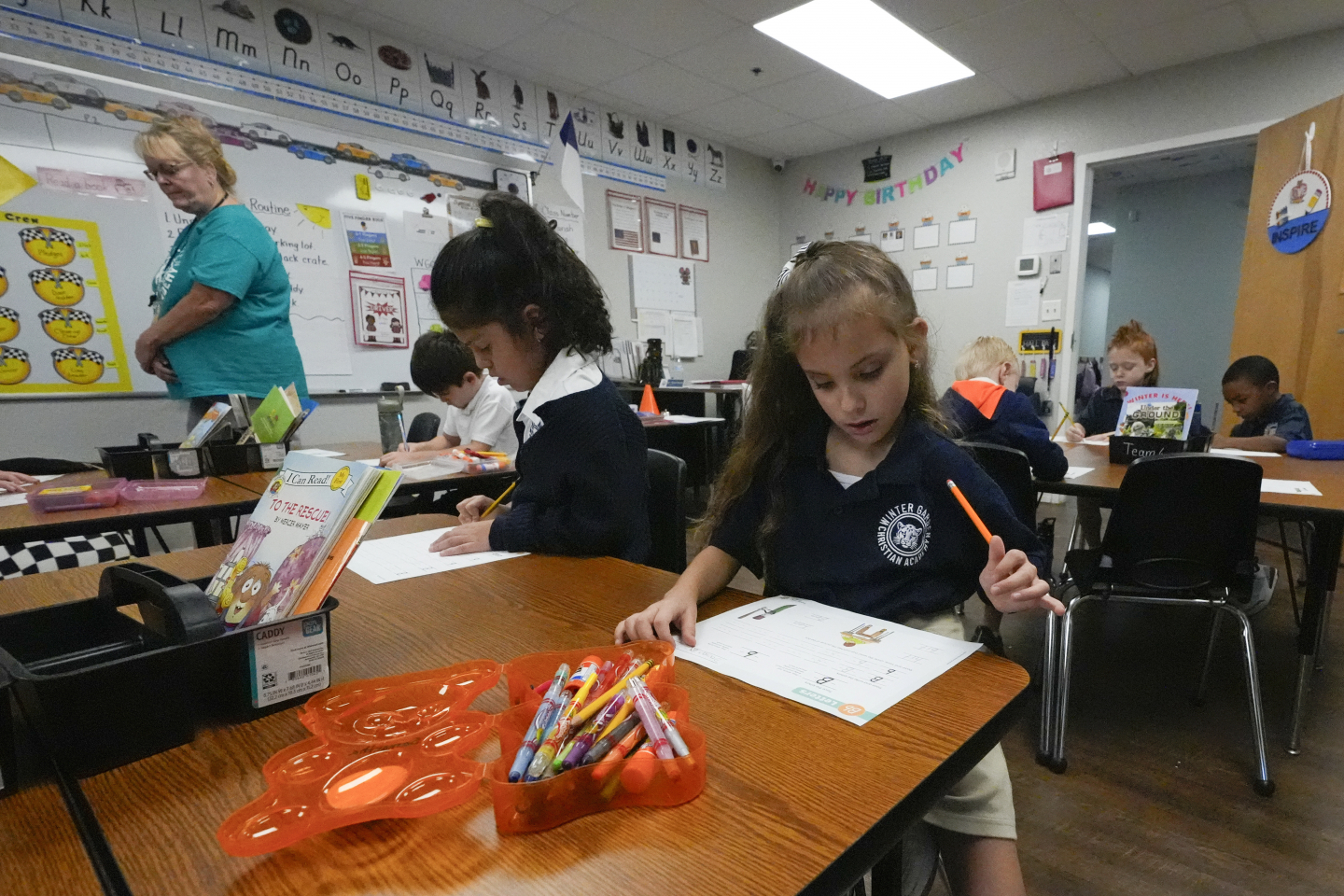The passage of the Educational Choice for Children Act (ECCA) and its K–12 tax credit program marks a pivotal moment for states committed to strengthening public education. While the law allows funds to flow to private school scholarships, a prospect that rightly concerns many public education advocates, it also opens a promising new and uncharted path: one that empowers public school families with the financial means to provide their children with the individualized academic and mental health support they deserve.
Critics have long warned that federal support for private school tuition undermines public education. And in many cases, those concerns are justified. Most private school scholarships fall far short of covering full tuition, effectively turning public money into little more than coupons, while directing funds toward schools that lack accountability and transparency and can discriminate against students and teachers.
But the ECCA, if interpreted strictly according to the letter of the law—something that might not be a given with this administration— and implemented wisely, offers another route. Scholarship Granting Organizations (SGOs) authorized under the law can subsidize a broad range of educational services beyond private school tuition, including tutoring, books, tech materials, academic counseling, and mental health services. These services could directly benefit public school students, particularly those from low- and middle-income families, in ways that supplement their existing public education.
It is now up to state leaders to determine how or whether ECCA will work for public school families. As written, the law gives states broad authority to shape the implementation: they decide which services qualify, which vendors are eligible, how funds are claimed and disbursed, and how families are informed.
This authority brings with it an equally broad responsibility. States that opt into ECCA must do more than reject the status quo of private school subsidies—they must take proactive steps to ensure that this program delivers real benefits to students. And that starts with establishing clear, equitable, and transparent guidelines for eligible services, with a focus on academic support, mental health, and disability-related interventions. It also means creating oversight mechanisms to monitor SGOs and prevent fraud, abuse, or favoritism.
At the same time, state leaders must also commit to actively informing all public school families—especially those in underserved communities—of their eligibility and options. Far too often, programs meant to support low-income families are so poorly publicized or bureaucratically complex that they go underutilized. That cannot happen here. Transparency and outreach are not optional; they are foundational.
Imagine a system where a working-class family can afford the same high-quality tutoring or mental health care that wealthier families take for granted. The academic needs are urgent. Learning gaps, many of them worsened by the pandemic, continue to challenge students across the country. Through ECCA, states can create approved vendor lists or reimbursement systems that allow parents to hire qualified tutors in subjects like reading and math, offering personalized support that schools often don’t have the staffing or funding to provide. This isn’t about replacing classroom instruction; it’s about augmenting it with the personalized attention students need.
Mental health is another crisis point. By allowing families to use tax credit funds for mental health counseling or behavioral supports, states can ease pressure on public school systems while ensuring students receive the emotional care they need to thrive. Students with disabilities could also benefit from expanded access to speech therapy, assistive technology, or diagnostic evaluations that aren’t always available through school-based services alone.
This approach isn’t a backdoor to privatization; it’s a direct investment in students and their families. It helps keep children enrolled in public schools while giving parents tools to meet their child’s unique needs. It fosters parental engagement and trust, particularly in communities where public schools are already facing tight budgets and staffing shortages.
But without action and accountability at the state level, none of these possibilities will materialize. Progressive leaders who oppose vouchers must now step up—not just in rhetoric, but in execution. They must spearhead systems that are equitable, accessible, and accountable to the public. And parents, educators, and advocates must hold them to that promise. Families deserve to know what’s available, how to access it, and how to ensure the system is working as intended.
The Educational Choice for Children Act gives states the power to lead. Those that value strong public schools should use this moment to build a forward-looking, inclusive vision of educational opportunity: one that complements the work of public schools, supports kids’ full academic and emotional development, and empowers families to be active participants in their child’s learning journey. This is how we truly ensure education for all children, strengthening the public system from the ground up, one family at a time.


